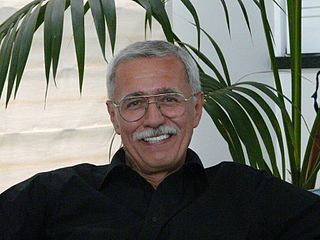A Quote by Emmeline Pankhurst
When you have warfare, things happen; people suffer; the noncombatants suffer as well as the combatants. And so it happens in civil war.
Related Quotes
If I have to reduce all of the laws of war into a single sentence, it is this. You divide the world into two, combatants and noncombatants. You can attack deliberately combatants, but not deliberately noncombatants. Israel acts that way. It attacks combatants and accidentally kills noncombatants. But in the case of the terrorists, it's the exact opposite. They deliberately attack combatants - noncombatants, civilians, deliberately.
The best test to know whether an entity is real or fictional is the test of suffering. A nation cannot suffer, feel pain or fear, or has no consciousness. Even if it loses a war, the soldier suffers, the civilians suffer, but the nation cannot suffer. Similarly, a corporation cannot suffer, when it loses its value, it doesn't suffer. All these things, they're fictions. If people bear in mind this distinction, it could improve the way we treat one another and the other animals. It's not a good idea to cause suffering to real entities in the service of fictional stories.
I saw battle-corpses, myriads of them,
And the white skeletons of young men-I saw them;
I saw the debris and debris of all the dead soldiers of the war;
But I saw they were not as was thought;
They themselves were fully at rest-they suffer'd not;
The living remain'd and suffer'd-the mother suffer'd,
And the wife and the child, and the musing comrade suffer'd,
And the armies that remain'd suffer'd.
I'm always interested in a claustrophobic situation where people might be powerless to do things. My first three novels were all about families. Things that happen in a house within a family, because you're a child or because you want to keep the family together, you suffer things you might not have had to suffer if you weren't in that situation.
To love is to suffer. To avoid suffering one must not love. But then one suffers from not loving. Therefore, to love is to suffer; not to love is to suffer; to suffer is to suffer. To be happy is to love. To be happy, then, is to suffer, but suffering makes one unhappy. Therefore, to be happy one must love or love to suffer or suffer from too much happiness.
God has made us humans in God's own image. So therefore the highest way to talk about God is by some kind of analogy with ourselves. So, naturally, if we who are finite and sinful suffer in multiple ways because of sin and evil and the horrible things that happen in our world, how much more does God, who is infinite, sinless, and knows the totality of all that happens to everybody, suffer pain and heartache at the suffering of his human and non-human creation - and be angry at all that causes it?






































